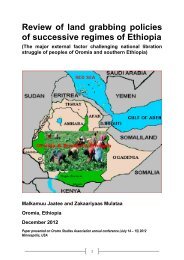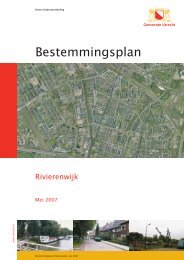freakonomics
freakonomics
freakonomics
You also want an ePaper? Increase the reach of your titles
YUMPU automatically turns print PDFs into web optimized ePapers that Google loves.
$10,000—is a mere $150. If you earn $9,400 while she earns only $150, maybe your<br />
incentives aren’t aligned after all. (Especially when she’s the one paying for the ads and<br />
doing all the work.) Is the agent willing to put out all that extra time, money, and energy<br />
for just $150?<br />
There’s one way to find out: measure the difference between the sales data for houses<br />
that belong to real-estate agents themselves and the houses they sold on behalf of clients.<br />
Using the data from the sales of those 100,000 Chicago homes, and controlling for any<br />
number of variables—location, age and quality of the house, aesthetics, and so on—it<br />
turns out that a real-estate agent keeps her own home on the market an average of ten<br />
days longer and sells it for an extra 3-plus percent, or $10,000 on a $300,000 house.<br />
When she sells her own house, an agent holds out for the best offer; when she sells yours,<br />
she pushes you to take the first decent offer that comes along. Like a stockbroker<br />
churning commissions, she wants to make deals and make them fast. Why not? Her share<br />
of a better offer—$150—is too puny an incentive to encourage her to do otherwise.<br />
Of all the truisms about politics, one is held to be truer than the rest: money buys<br />
elections. Arnold Schwarzenegger, Michael Bloomberg, Jon Corzine—these are but a<br />
few recent, dramatic examples of the truism at work. (Disregard for a moment the<br />
contrary examples of Howard Dean, Steve Forbes, Michael Huffington, and especially<br />
Thomas Golisano, who over the course of three gubernatorial elections in New York<br />
spent $93 million of his own money and won 4 percent, 8 percent, and 14 percent,<br />
respectively, of the vote.) Most people would agree that money has an undue influence on<br />
elections and that far too much money is spent on political campaigns.<br />
Indeed, election data show it is true that the candidate who spends more money in a<br />
campaign usually wins. But is money the cause of the victory?<br />
It might seem logical to think so, much as it might have seemed logical that a booming<br />
1990s economy helped reduce crime. But just because two things are correlated does not<br />
mean that one causes the other. A correlation simply means that a relationship exists<br />
between two factors—let’s call them X and Y—but it tells you nothing about the<br />
direction of that relationship. It’s possible that X causes Y; it’s also possible that Y<br />
causes X; and it may be that X and Y are both being caused by some other factor, Z.<br />
Think about this correlation: cities with a lot of murders also tend to have a lot of police<br />
officers. Consider now the police/murder correlation in a pair of real cities. Denver and<br />
Washington, D.C., have about the same population—but Washington has nearly three<br />
times as many police as Denver, and it also has eight times the number of murders.<br />
Unless you have more information, however, it’s hard to say what’s causing what.<br />
Someone who didn’t know better might contemplate these figures and conclude that it is<br />
all those extra police in Washington who are causing the extra murders. Such wayward<br />
thinking, which has a long history, generally provokes a wayward response. Consider the<br />
folktale of the czar who learned that the most disease-ridden province in his empire was









